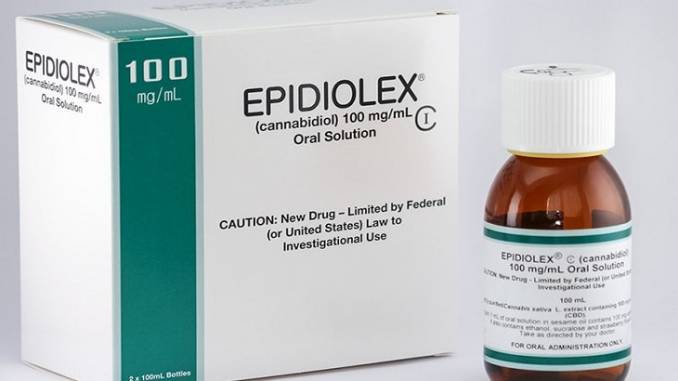In a fascinating early August conference call with Seeking Alpha, British-based GW Pharmaceuticals finally revealed their retail price point for CBD-based drug, Epidiolex, as it goes into distribution in the U.S.
The drug is designed for the treatment of certain kinds of childhood epilepsy – although not all kinds. Also notable of course, is that GW Pharma’s “other” drug for treatment of resistant epilepsy failed in late stage trials in Eastern Europe earlier this year. It also knocked off 5% of the price of the company’s stock.The company is estimating it has a potential patient pool of between 25,000- 30,000 patients in the U.S.
British Advocacy Over Access And Pricing
The ineffectiveness of GW Pharma’s drugs for many patients (along with the cost charged for them) was responsible for pre-empting the entire access discussion in the UK this year. The mother of an epileptic British child tried to import a personal store of cannabis oil (produced by Canadian LP Tilray) only to have it confiscated at the airport this summer. Her son ended up in the hospital shortly thereafter.
The national uproar this caused pushed forward the country’s new medical cannabis policy– indeed drug rescheduling is due to go into effect in October. Conveniently, right as Epidiolex goes on sale in the U.S. (where cannabis remains a Schedule I drug).
The company is estimating it has a potential patient pool of between 25,000- 30,000 patients in the U.S.
Price Tags and Politics
What is the price of Epidiolex? $32,500 per patient, per year. If that sounds high, the company insists it is pricing the drug to be “in line” with other drugs for this segment of the market.
The majority of this cost will not be picked up by private health insurers but rather the federal governmentActually, according to industry analysis, this is about 70% more than the price of one comparable drug (Onfi), and slightly more expensive than Banzel, the two competing (non-cannabinoid based) medications now available in the U.S. for this market.
Here is the other (widely unreported) kicker. The majority of this cost will not be picked up by private health insurers but rather the federal government, which is also not negotiating with GW Pharma about that high price (unlike for example what is going on in Europe and the German bid).
Why the difference?
Two reasons. The first is that Epidiolex has obtained “orphan drug” status (a medication for a disease that affects fewer than 200,000 patients in the U.S.) The second is that the majority of the insurance that will be picking up this tab is Medicaid. The patient pool will be unable to afford this. As a result, the bulk of the money will remit not from private insurance companies but rather federal taxpayers. And, unlike in say, Germany, none of this is pre-negotiated in bulk.

Co-payments are expected to range from $5 to $200 per month per patient after insurance (read: the government) picks up the tab. This essentially means that the company plans to base participation at first at least on a sliding scale, highly subsidized by a government that has yet to reschedule cannabis from a Schedule I in the U.S.
Creating, in other words, a new monopoly position for GW Pharmaceuticals in North America.
A Hypocrisy Both Patients And The Industry Should Fight
The sordid, underhanded politicking that has created this canna monster is hardly surprising given the current political environment in both the U.S. and the U.K. right now. The people who benefit the most from this development are not patients, or even everyday shareholders, not to mention the burgeoning legitimate North American cannabis industry, but in fact highly placed politicians (like British Prime Minister Theresa May). Philip May, the PM’s husband’s firm is the majority shareholder in GW Pharma. Her former drugs minister (with a strong stand against medical cannabis) is married to the managing director of British Sugar, the company that grows GW Pharma’s cannabis stock domestically.
So far, despite a domestic outcry over this in the UK (including rescheduling), there has been no political backlash in the United States over this announcement. Why not?
Look To Europe For A More Competitive Medical Market
This kind of pricing strategy is also a complete no go in just about every other market – including medical-only markets where GW Pharma already has a footprint.
For example, German health insurers are already complaining about this kind of pricing strategy for cannabis (see the Cannabis Report from one of the country’s largest insurers TK – out earlier this year). And this in an environment where the government, in fact, does negotiate a bulk rate for most of the drugs in the market. Currently most German cannabis patients are being given dronabinol, a synthetic form of THC which costs far less.
 On top of this, there are also moves afoot by the German government to begin to bring the costs of medical cannabis and medicines down, dramatically. And this too will impact the market – not only in Europe, but hopefully spark a debate in every country where prices are also too high.
On top of this, there are also moves afoot by the German government to begin to bring the costs of medical cannabis and medicines down, dramatically. And this too will impact the market – not only in Europe, but hopefully spark a debate in every country where prices are also too high.
The currently pending German cultivation bid for medical cannabis has already set an informal “reference” price of at most 7 euros a gram (and probably will see bid competitors come in at under half that). In other words, the government wholesale price of raw, unprocessed cannabis flower if not lightly processed cannabis oil is expected to be somewhere in the neighbourhood of 3-4 euros per gram come early next year. If not, as some expect, potentially even lower than that.
Processed Cannabis Medicine vs. Whole Plant Treatment
The debate that is really raging, beyond pricing, is whether unprocessed cannabis and cannabis oil is actually “medicine.” At the moment, the status quo in the U.S. is that it is not.
GW Pharmaceuticals, in other words, a British company importing a CBD-based derivative, is the only real “medical cannabis” company in the country, per the FDA. Everyone else, at least according to this logic, is placed in the “recreational camp.” And further, hampered still, with a lack of rescheduling, that affects everyone.
If that is not an organizing issue for the American cannabis industry, still struggling with the many issues inherent in the status quo (from insurance coverage and banking to national distribution across state lines) leading up to the midterms, nothing will be.









